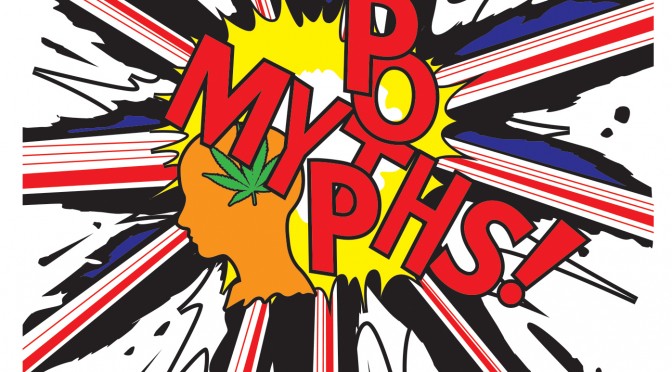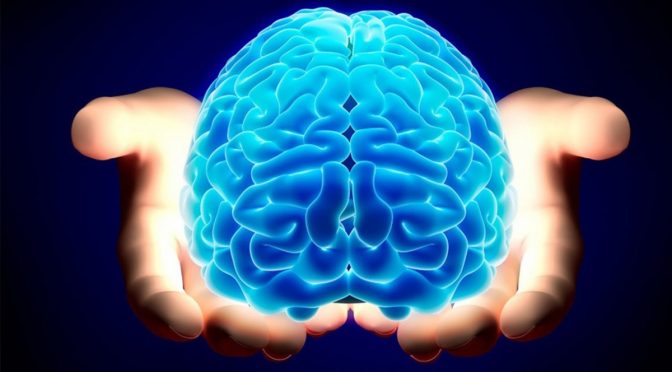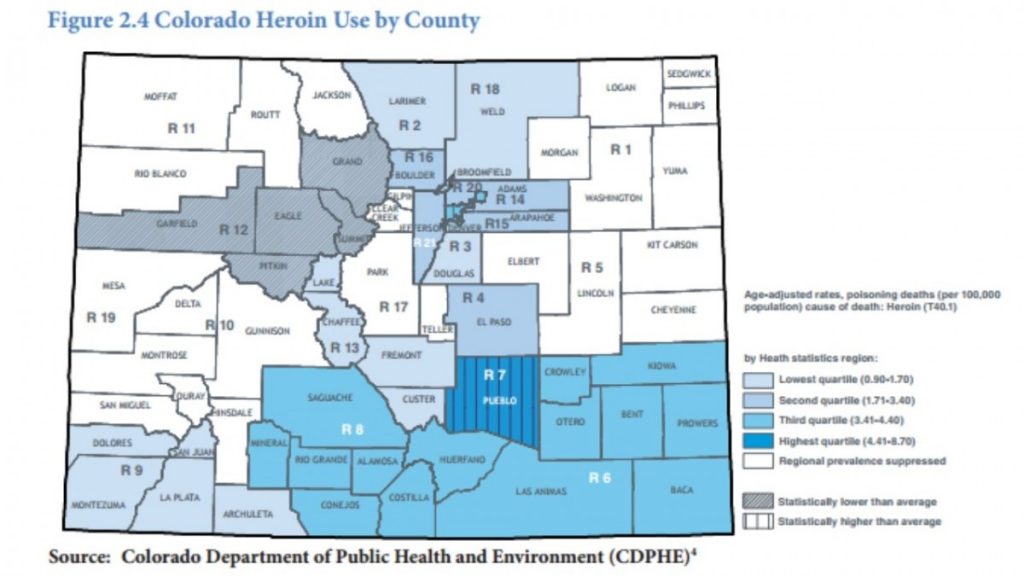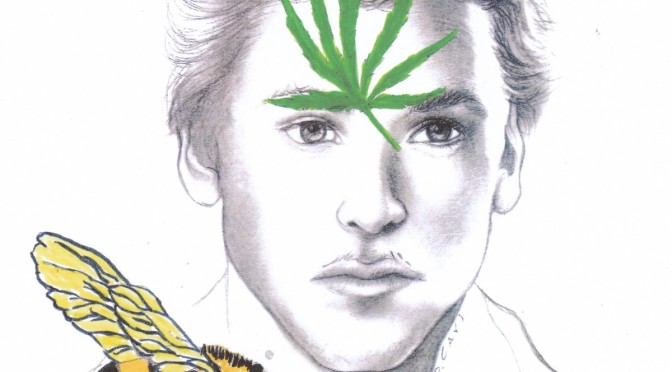By Ben Johnson, an article which appeared on the Daily Wire as Going Green: The Physical, Mental and Emotional Problems Associated with Marijuana
In an era when the Left obsessively fights against “misinformation,” at least one subject has evaded their concern: Although scientific studies indicate that marijuana is associated with profound mental illnesses, emotional problems, and physical diseases, a shocking number of Americans believe that weed is harmless or helpful — possibly even a natural cure for cancer.
The media frequently parrot the talking points of billionaires George Soros, Peter Lewis, and John Sperling, who spent an estimated $71.3 million between 1996 and 2016 to promote drug legalization, in the process creating the image of marijuana as a benign natural remedy. Websites like Vox.com promote that narrative, telling readers, “Overall, marijuana is a relatively safe drug. … marijuana’s harms appear to be relatively small.” Media malpractice has led to a new pandemic of Americans ingesting increasingly high-potency marijuana, unaware of the consequences.
Billionaires changed the public perception
After a precipitous fall during the “Just Say No” era of the 1980s, marijuana use has been rising, especially among America’s young people. In 1992, the number of children between the ages of 12 to 17 who had used marijuana in the last month stood at 4%. In 2019, that rate more than doubled, to 9%, according to the federal Substance Abuse and Mental Health Services Administration, a large part of that has been the push for drug legalization/decriminalization begun that year by George Soros. After Colorado legalized recreational marijuana in 2014, the number of total users increased by nearly two-thirds.
Positive public relations help the marijuana industry
Marijuana’s positive PR has proven particularly successful among the most desperate and vulnerable Americans. Almost one in four breast cancer victims smokes marijuana, and “49% of cannabis users believed that medical cannabis could be used to treat cancer itself,” according to a new study published by the American Cancer Society. A separate study found that 80% of “high-impact articles” on social media “were false news that proposed cannabis as cancer cure.”
Psychological illnesses emerge as a result of marijuana use
That should be concerning for a panoply of reasons, since numerous studies show that marijuana use can harm people in (at least) the following ways:
Psychosis and schizophrenia: Several studies have found that smoking marijuana may trigger mental illnesses, including psychoses like schizophrenia, especially in people already predisposed to develop them. “[C]annibis use, primarily THC in cannabis, in genetically predisposed or at-risk populations, leads to earlier diagnosis of psychosis/schizophrenia,” found a systematic review of existing research conducted by Shweta Patel and colleagues, and published at the peer-reviewed Cureus Journal of Medical Science. “THC in cannabis also makes schizophrenia and psychosis symptoms worse and causes more relapses and hospitalizations.”
Theirs was one of numerous studies linking mental illness to marijuana consumption. “Ten studies [have] found a significant risk of young cannabis users developing psychosis,” reported the Scientific American in 2017. “Cannabis use during puberty is a major risk factor for schizophrenia,” said Hannelore Ehrenreich of the Max Planck Institute of Experimental Medicine at the 2017 World Psychiatric Association’s World Congress. Robin Murray, a professor of psychiatry at King’s College in London, found that nearly one out of every four cases of schizophrenia he researched involved the use of high-potency marijuana. There is a “strong association of cannabis use with the onset of psychiatric disorders,” the American Psychiatric Association summarized in 2019.
Pot use increases anxiety and paranoia
Anxiety and other psychological issues: Ironically, although many people use marijuana to reduce anxiety, it may make the problem worse. A 2017 study found, in the words of Psychology Today, that smoking marijuana “increased feelings of paranoia, anxiety, visual illusions, strangeness, inattention and slowed time, as well as poor performance on tasks related to memory and response inhibition.” The culprit is THC, which “appears to decrease anxiety at lower doses and increase anxiety at higher doses,” according to the University of Washington’s Alcohol and Drug Abuse Institute. The potential for harm has increased, as the mean THC concentration of marijuana nearly doubled between 2008 and 2017.
Socio-economic problems multiply with pot
Shorter life expectancy: Men who used marijuana heavily in their teen years are 40% more likely to die by the time they reach the age of 60, according to a massive study published in the American Journal of Psychiatry. “Swedish researchers analyzed the records of more than 45,000 men beginning in 1969 and 1970,” reported CBS News. “The scientists from the Karolinska Institutet in Stockholm reported that 4,000 died during the 42-year follow-up period, and men who’d used marijuana heavily at ages 18 and 19 were 40 percent more likely to die by age 60 compared to guys who hadn’t used the drug.” Their findings upended previous studies that found no such linkage.
Becoming poorer, with more relationship problems: Regular marijuana users end up in “a lower social class than their parents, with lower-paying, less skilled, and less prestigious jobs. They also experience more financial problems, more problems at work, and more relationship difficulties,” according to a study that followed 1,000 regular marijuana users from age 18 to 38. Individuals who reported “regular cannabis use and persistent dependence experienced downward socioeconomic mobility, more financial difficulties, workplace problems, and relationship conflict in early midlife,” according to Magdalena Cerdá of the University of California-Davis, Health System, and Avshalom Caspi and Terrie Moffitt at Duke University, whose study appeared in Clinical Psychological Science, the peer-reviewed journal of the Association for Psychological Science.
Pot triggers loss of memory and brain aging
Memory problems, and brain aging: Regular marijuana users had a harder time remembering new information, according to a team of researchers who studied nearly 3,400 American marijuana users over a 25-year period. Marijuana usage can reduce decision-making ability, memory, and psychical control in the short term, and some negative effects may persist for life.
Harvard Medical School explained that “there’s no question that marijuana … can produce short-term problems with thinking, working memory, executive function, and psychomotor function (physical actions that require conscious thought, such as driving a car or playing a musical instrument). This is because marijuana’s main psychoactive chemical, THC, causes its effect by attaching to receptors in brain regions that are vital for memory formation, including the hippocampus, amygdala, and cerebral cortex.” While the full effect of long-term use is unknown, a 2016 UC-San Francisco study found that even past use of marijuana made people less likely to remember words in adulthood.
After examining 62,454 brain scans, researchers found that cannabis abuse accelerated brain aging by 2.8 years, a contributing factor to developing Alzheimer’s Disease, according to a study published in the peer-reviewed Journal of Alzheimer’s Disease. “Prior papers have suggested that marijuana can damage the brain. What surprised [us] was how low blood flow was in the brains of our cohort – virtually every brain area had reduced blood flow on perfusion imaging in relation to marijuana use,” said Dr. Cyrus Raji, who co-authored the study.
Marijuana use causes specific serious physical diseases
Lung diseases like asthma and bronchitis: “Marijuana smoking is associated with large airway inflammation, increased airway resistance,” according to a synthesis of scholarly research produced by the U.S. government’s National Institute on Drug Abuse, “and those who smoke marijuana regularly report more symptoms of chronic bronchitis than those who do not smoke.” NIDA also cited studies showing that marijuana may suppress the body’s immune system, increasing the chances of developing pneumonia and chronic bronchitis.
Testicular cancer: Several studies have found a positive correlation between marijuana use and the development of testicular cancer, especially among “heavy” users who had smoked pot at least 50 times in their lives. One review of scholarly literature cautions the existing evidence is “low-strength,” because so many marijuana users also smoke cigarettes — but they still find weed inhalation increases the likelihood of developing testicular germ cell tumors (TGCT).
Other cognitive functions decline with pot use
Possibly lowers intelligence: Some evidence indicates that marijuana use decreases the intelligence of people who take it. The most consequential study comes from New Zealand (the Dunedin study), where researchers followed marijuana users from age 18 to 38 and found that people who began using marijuana in adolescence lost between six and eight points from their IQ – and quitting does not reverse the intelligence lost. Future studies disputed this somewhat, as researchers discovered cannabis users “already had significantly lower IQ scores. Put another way, cannabis did not drag down their IQ; it was already low.” To put that colloquially, researchers are now pursuing the chicken-and-egg question of whether adolescent marijuana use makes people stupid or if stupid people choose to use marijuana.
Inability to feel joy: Researchers warn about higher THC levels causing cannabis-induced “anhedonia” — a medical term which means the “inability to feel pleasure” in Greek. “Over years, the regular use of cannabis has substantially increased among young adults, as indicated by the rise in cannabis use disorder (CUD), with an estimated prevalence of 8.3% in the United States,” said a March 2021 study in the peer-reviewed journal Frontiers in Psychology. “Research shows that exposure to cannabis is associated with hypodopaminergic anhedonia (depression), cognitive decline, poor memory, inattention, impaired learning performance, reduced dopamine brain response-associated emotionality, and increased addiction severity in young adults.”
On the other hand, researchers in Canada found a marked increase in “emergency department consultations for cannabis-related mood disorders, as well as suicide and intentional self-harm” after the nation legalized recreational marijuana in October 2018. This may stem from marijuana’s addictive components altering the person’s approach to the brain’s reward circuitry after a flood of dopamine.
False memories fuel misinformation
Creating false memories: Any media interested in combating misinformation would condemn the rising rate of marijuana use, since “[c]annabis seems to increase false-memory proneness,” according to a March 2020 study from The Netherlands.
Marijuana use harms non-users, too
Innocent bystanders: Although drug use is often presented as a personal decision, the harm caused by marijuana extends beyond the user alone. Aside from the toll of innocent victims when marijuana users drive under the influence, the American Lung Association warns, “Secondhand marijuana smoke contains many of the same toxins and carcinogens found in directly-inhaled marijuana smoke, in similar amounts if not more.” Their biggest concern is about “vulnerable children in the home.”
Contrary to MSNBC and CNN hand-wringers, the real disinformation comes from paid propagandists, scientists on the take, and billionaires who (for whatever reason) are promoting a drug that appears to inhibit Americans from exercising the cognitive functions necessary to be independent citizens. The effort to whitewash drug abuse is typical in a world that demands pleasure with no consequence. But that world doesn’t exist — a fact too many people find out too late.
The views expressed in this piece are the author’s own and do not necessarily represent those of The Daily Wire.
The Daily Wire is one of America’s fastest-growing conservative media companies and counter-cultural outlets for news, opinion, and entertainment. (Editor’s Note: Parents Opposed to Pot does not identify with conservative or liberal politics, because deliberate misinformation comes from both sides of the aisle. Its principals and followers include independents and people who belong to both political parties. )





